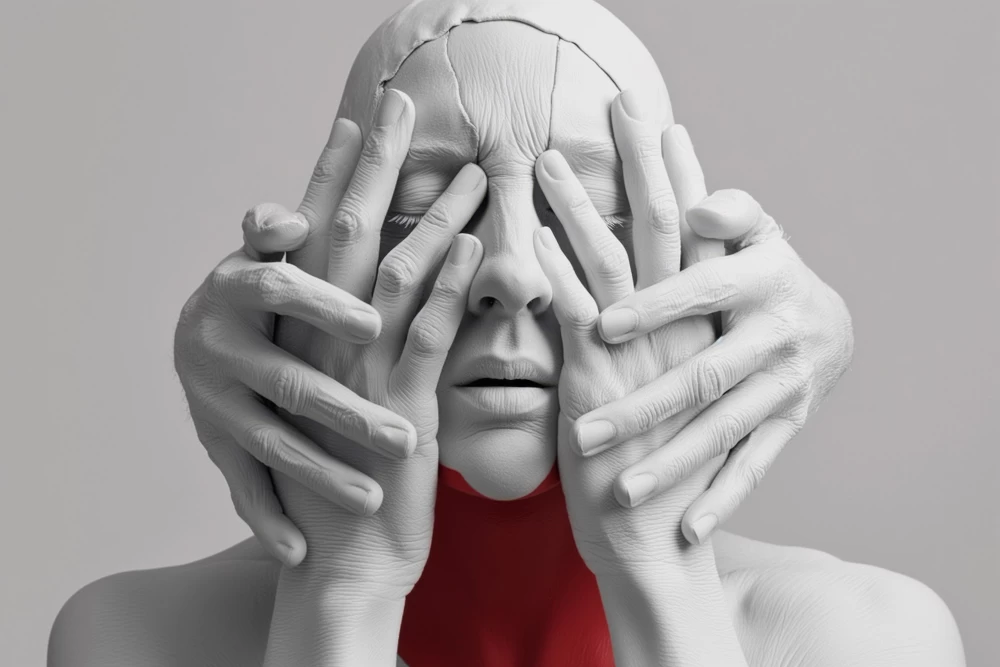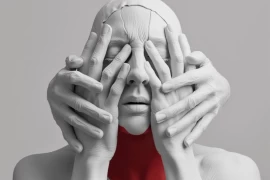
Obsessive-Compulsive Disorder
- Obsessive-Compulsive Disorder
Obsession refers to irrational, disturbing, and repetitive thoughts experienced by an individual. Compulsion, on the other hand, involves repetitive behaviors performed to alleviate the distress caused by these thoughts. OCD is a disorder characterized by obsessions and compulsions that, when left untreated, can spread to different areas of life, negatively affecting an individual's quality of life, work, and social functioning.
- Types of Obsessive-Compulsive Disorder
Obsessive-Compulsive Disorder (OCD) is classified according to symptoms, and there are many types, each presenting different clinical manifestations of the same disorder.
⦁ Doubt Obsession and Checking Compulsion: Individuals experience doubt about whether they left the door or window open, or unplugged electrical appliances (doubt obsession). To reassure themselves, they engage in repeated checking behaviors (checking compulsion). Sometimes, they seek the presence of others to limit these behaviors. For example, one of my clients doubted whether they performed the steps of ablution correctly and wanted their spouse to supervise them while performing ablution.
⦁ Losing Control Obsessions: Individuals with these obsessions fear suddenly losing control and harming themselves or others, or blurting out inappropriate things. For instance, a homemaker client of mine was afraid of jumping out of the window when alone at home or harming her family members, so she avoided being close to windows and refrained from holding sharp objects.
⦁ Sexual Obsessions: Individuals experience intrusive sexual thoughts that they find unacceptable based on societal norms, leading to anxiety about engaging in inappropriate behavior. For example, a female client of mine avoided going out because she feared touching the genitals of passing men. At home, she struggled with unwanted sexual thoughts about her family members and tried to alleviate them through constant religious rituals.
⦁ Religious Obsessions: This type is particularly common in societies with intense religious beliefs. Individuals cannot prevent themselves from thinking obsessive thoughts that contradict their beliefs. For instance, one of my clients constantly suffered from unwanted blasphemous thoughts about Allah.
⦁ Symmetry and Order Obsessions: Individuals feel distressed when things are not in order and fear that something bad will happen if they are not arranged properly. For example, one of my clients didn't allow anyone, including her children and husband, to disturb anything in the house. She wanted everything to remain in perfect order, even straightening out the marks left on the couch by sitting. Eventually, she became agitated by the lack of symmetry even outside the home, needing therapy when she could no longer leave the house.
⦁ Touching Compulsions: Some OCD patients feel compelled to touch certain objects or surfaces, fearing that something bad will happen if they don't. For example, before leaving the house, one of my clients had to touch the doormat; otherwise, she feared burglars would enter the house and harm her family. As she struggled to be sure she had touched it, she would ask her spouse to witness the action and even call them from work to confirm.
⦁ Counting Compulsions: Some individuals engage in counting behaviors such as counting objects, shelves, or doorknobs, fearing that something bad will happen if they don't. For example, one of my clients would count the kitchen cabinet doors before leaving home, often repeating the count out of fear. This caused her to be late for work.
⦁ Hoarding Compulsions: This involves the inability to discard useless items, leading to the accumulation of clutter in the home over time. For example, one of my clients couldn't even throw away broken items and would pick up random objects from the street, causing serious conflicts with her spouse.
⦁ Superstitious Beliefs: Cultural beliefs about lucky or unlucky numbers, colors, or behaviors can become obsessions if they significantly restrict daily functioning.

Is Every Obsessive Thought or Behavior OCD?
Looking at examples, many of us may wonder, "What harm is there in being clean and orderly, or in checking doors and windows for security purposes? Should these be considered illnesses?" From a medical perspective, such thoughts and behaviors should be considered a disorder only if they significantly affect and restrict our daily functioning. For example, if a homemaker's cleanliness and orderliness lead to repeated cleaning of the same areas, thereby affecting social and family life, and leaving no time for herself or her family, it may be considered a disorder.
Causes of Obsessive-Compulsive Disorder
Although the exact cause is unknown, several hypotheses are considered. The high prevalence of OCD among first-degree relatives suggests a genetic predisposition. Studies on the brain have shown abnormalities in serotonin function in OCD patients, indicating biological factors as potential causes. Upbringing style, especially fixation during the anal stage, is another risk factor.
Treatment of Obsessive-Compulsive Disorder
Medications that act primarily on serotonin are highly effective. However, it takes at least two weeks to see the effects of medication. To determine whether the medication is effective, it is necessary to wait at least two months. Dosage adjustments may be made based on the level of effectiveness, and treatment should continue for a while at the effective dose. Cognitive-behavioral therapy, supportive psychotherapy, and other therapeutic techniques can also be used with or without medication.

Spc. Dr. Tuba Öğer
Psychiatry





